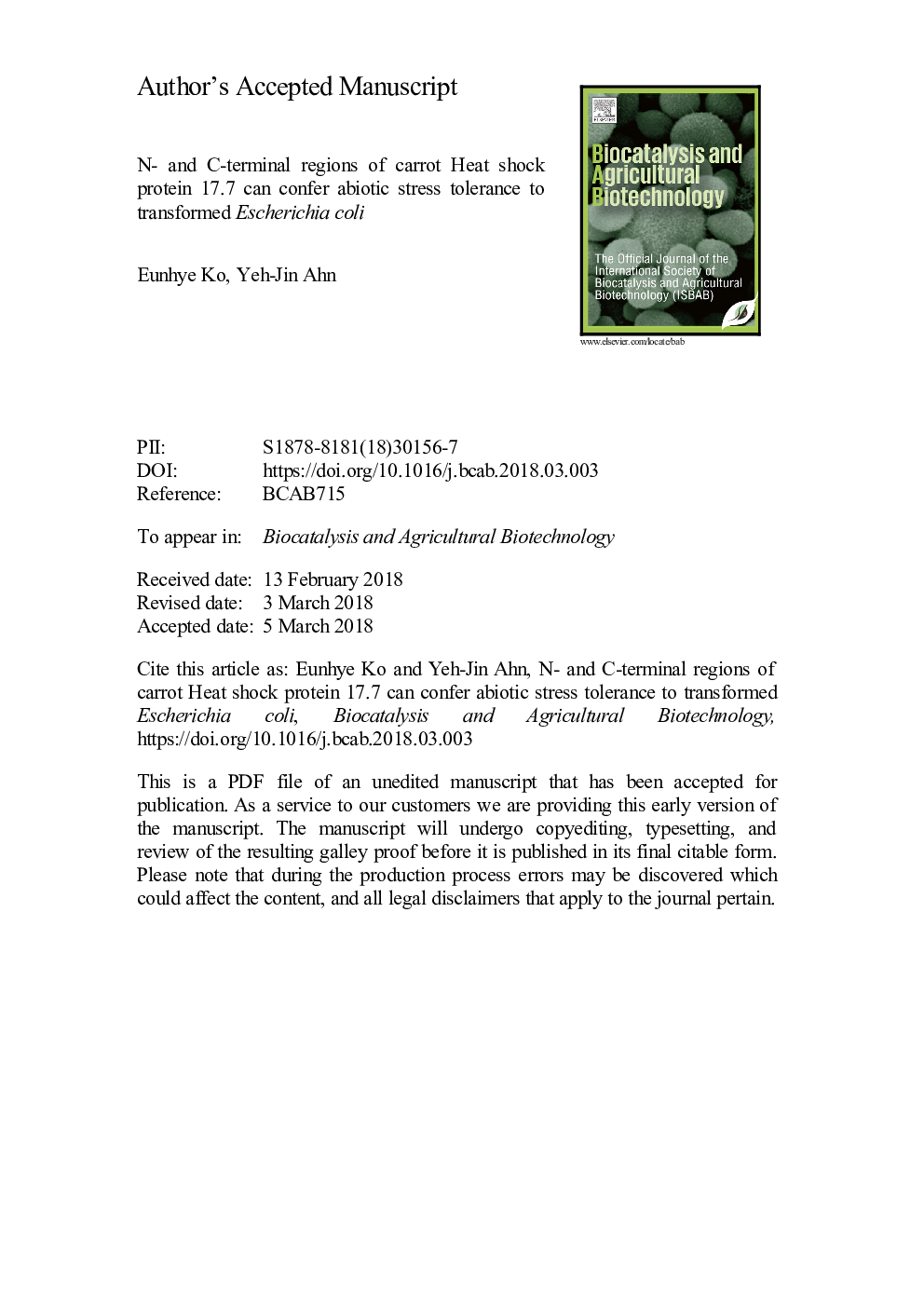| Article ID | Journal | Published Year | Pages | File Type |
|---|---|---|---|---|
| 8405817 | Biocatalysis and Agricultural Biotechnology | 2018 | 20 Pages |
Abstract
Small heat shock proteins (sHsps) are ubiquitous molecular chaperones that consist of divergent N-terminal and conserved C-terminal regions containing an α-crystallin domain. We introduced the full-length and truncated N- or C-terminal polypeptides of carrot sHsp 17.7 (DcHsp17.7) into Escherichia coli and examined their possible functions in abiotic stress. All three polypeptides increased soluble protein levels and cell viability compared to those of the vector control in stressed E. coli. The heterologous expression of the truncated N-terminal region resulted in the highest levels of stress tolerance under heat, salt, osmotic pressure, and nanomaterial conditions, followed by the full-length DcHsp17.7 and C-terminal region of the protein. When exposed to cold stress, the transformed cell line expressing the full-length DcHsp17.7 showed the highest tolerance levels, followed by the truncated N- and C-terminal regions. Our results suggest that the N- and C-terminal regions of DcHsp17.7 can function independently to increase stress tolerance and that their functional mechanism may be complex, depending on the type of stress presented.
Keywords
Related Topics
Life Sciences
Agricultural and Biological Sciences
Agricultural and Biological Sciences (General)
Authors
Eunhye Ko, Yeh-Jin Ahn,
